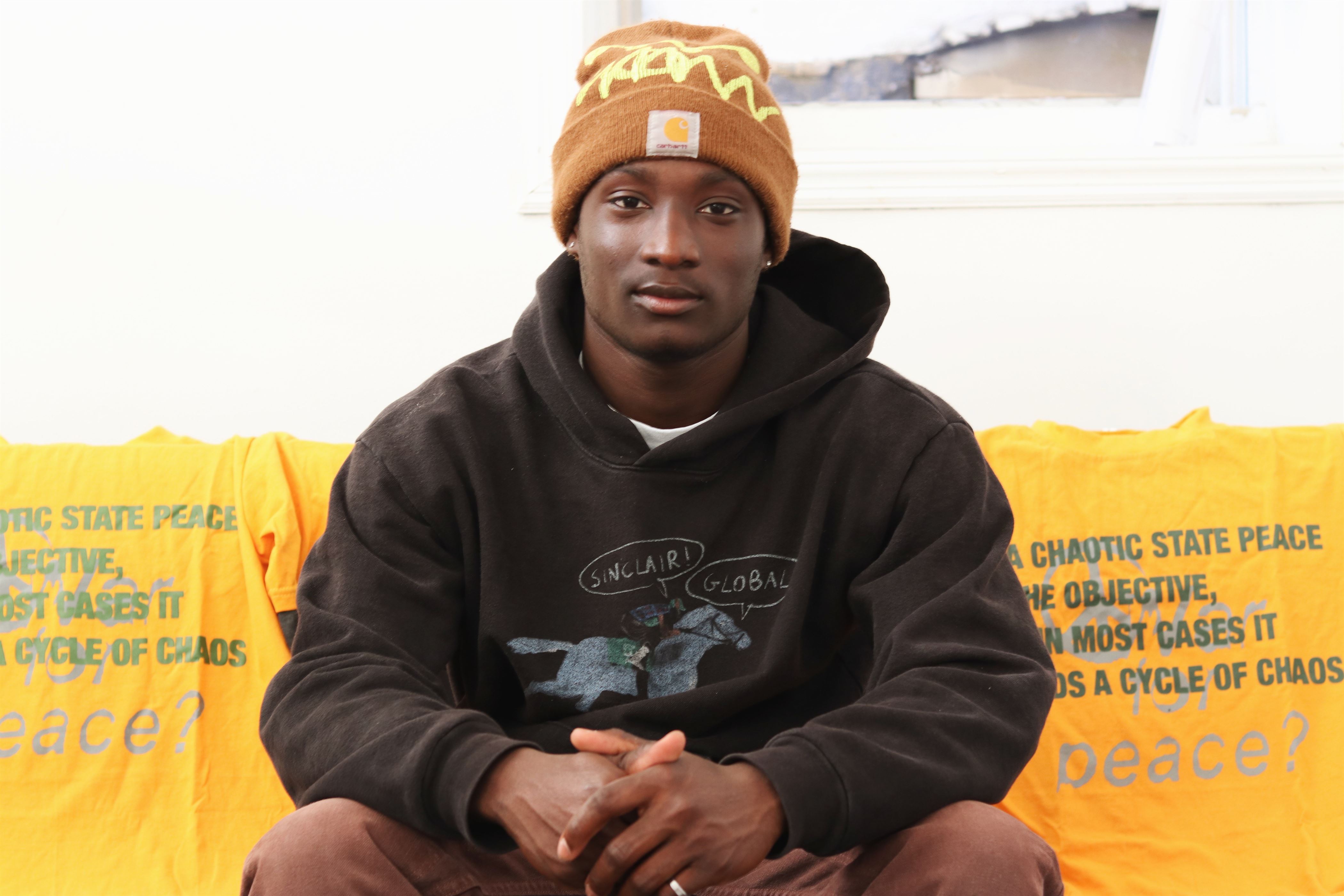Clothes, community, collections and collaboration are all words that encapsulate the ever-growing fashion brand Last of a Dying Breed founded by Montclair State University student Tyler Aboagye and two childhood friends.
When asked about how he manages running a brand while being a college student, the sophomore anthropology major finds himself at a loss of words, simply saying, “To be honest, I don’t know.”
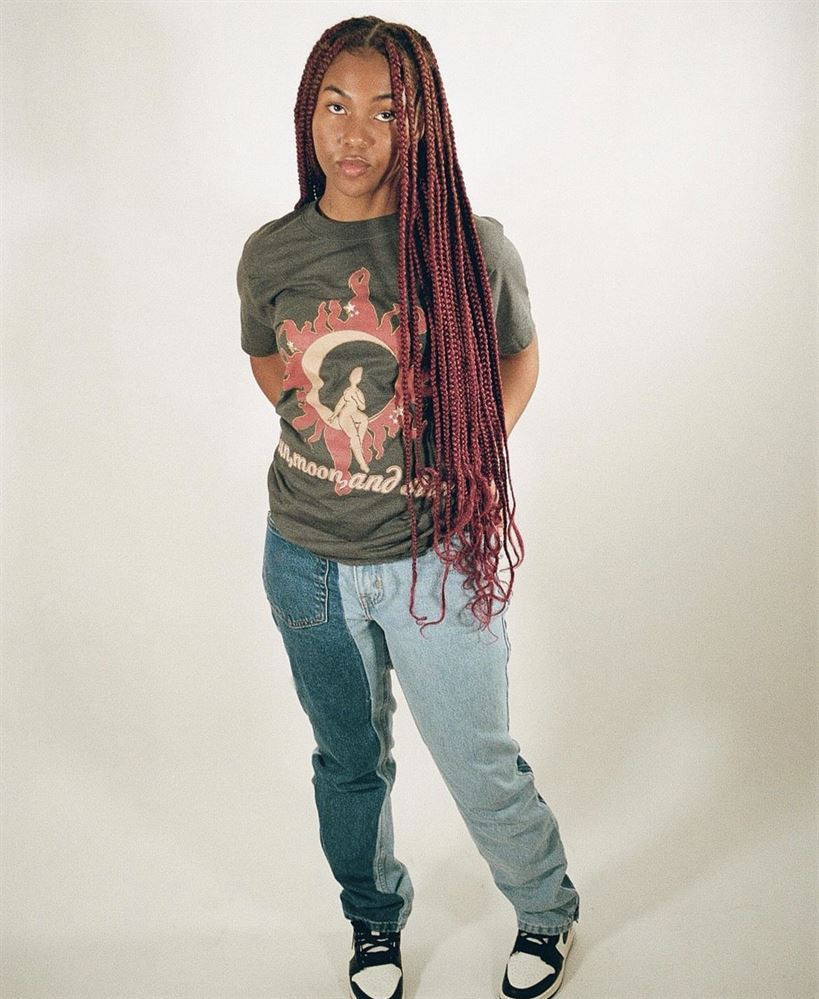
A model wears the Corrupt World Reverse Denim.
Chelsea Pujols | The Montclarion
“I don’t look at my brand as work,” Aboagye said shrugging and laughing. His short and simple answer is deceiving, as the shy designer surprises you with story after story about the brand’s origins.
Although Last of a Dying Breed is currently reaching over 2,000 followers and has made a profit of over $10,000 in early 2021, Aboagye reminisced about his sophomore year of high school in Newark, where his story began. He recalled visiting a print shop after school, where he learned how to screenprint. He laughed as he remembered his parents being annoyed with him coming back home late, but Aboagye’s obsession with clothing was worth the scolding.
“We all loved clothes at the time,” Aboagye said referring to himself and his co-founders Kevyn Moulton and former third co-founder Taj Hughes. He cites his love for fashion as almost an obsession, describing how he was transfixed on the outfits his older siblings would wear to a night out.
“I hated the way my parents dressed me,” Aboagye said as he recalled memories of wanting to dress differently than his parents wanted him to.
The Last of a Dying Breed brand began with hoodies, and then slowly moved into streetwear with the Moon Girl collection, which played into early 2000s nostalgia with vibrant velvet tracksuits complete with silver bedazzling. Aboagye cites this collection as a love letter to the women in their lives, saying that the brand is “more than just collections of clothes.”
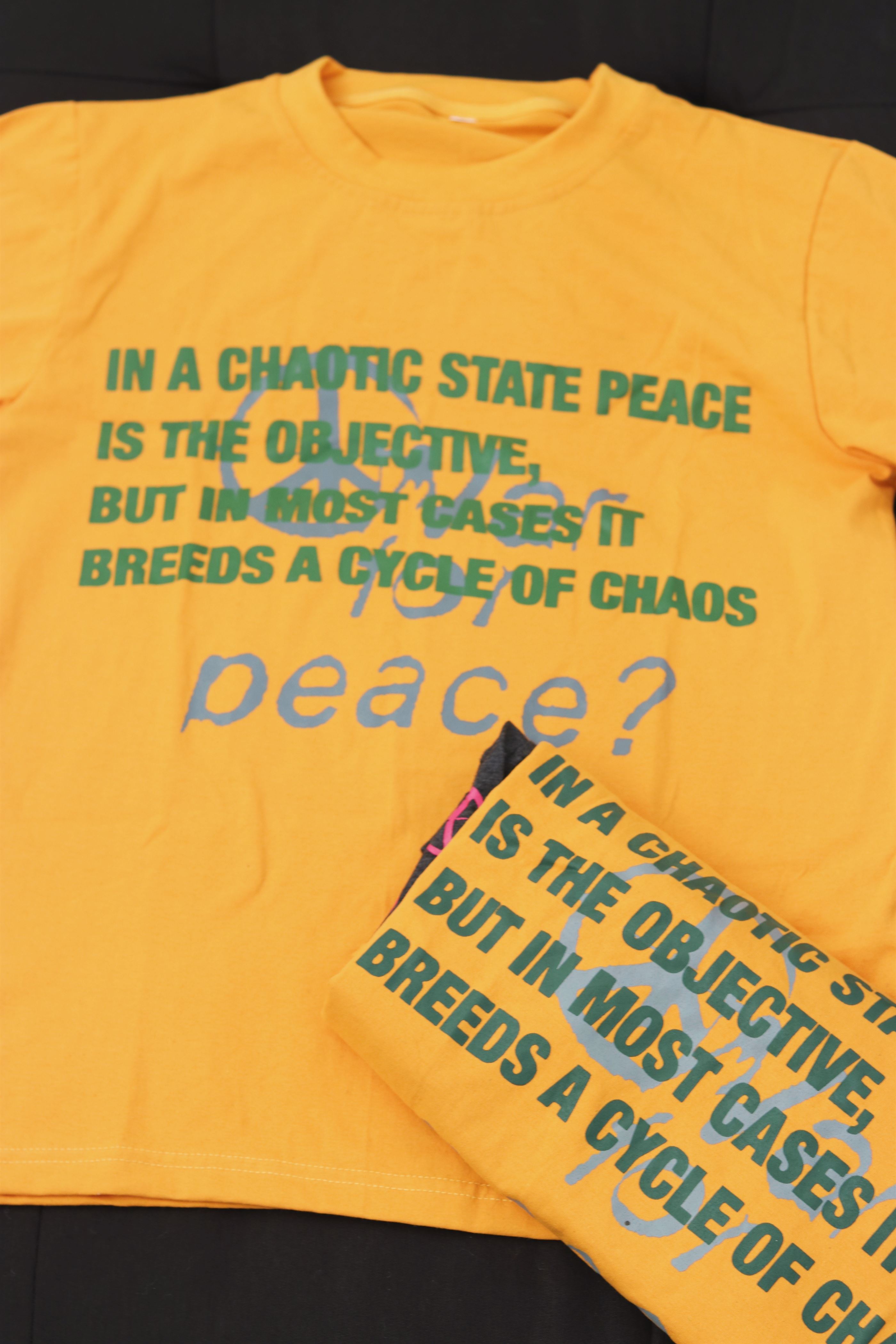
The War for Peace shirt displayed.
Chelsea Pujols | The Montclarion
Co-founder Moulton, a sophomore at Morehouse College, is the one who came up with the concept for the Moon Girl collection. He originally did not want to sell it as a part of the Last of a Dying Breed brand, but Aboagye encouraged him to do so. The collection quickly became one of the brand’s top sellers.
The Last of a Dying Breed website contains a letter written by Moulton explaining his reasoning behind the collection.
“Moon Girl embodies this inspiration that women provide as mothers, teachers and nurturers. Acknowledging the value of women and the celestial bodies surrounding us like the moon,” the letter said.
Aboagye credits Moulton as the more “spiritual one” of the two and expresses the responsibility they both feel to continue to elevate with each release of a collection.
“We always transcend the meaning of individuality with each drop,” Aboagye said.
Although he is not directly involved with the brand anymore, former co-founder and current founder of Fast Life Archive Taj Hughes echoes that sentiment.
“They push themselves every drop to make it better and better,” Hughes said. “It pushes me to do the same thing.”
After the first release of the Moon Girl collection in 2020, the brand moved on to the Corrupt World collection, conceptualized by Aboagye. This then birthed the War for Peace collection, which is the brand’s longest-running collection.
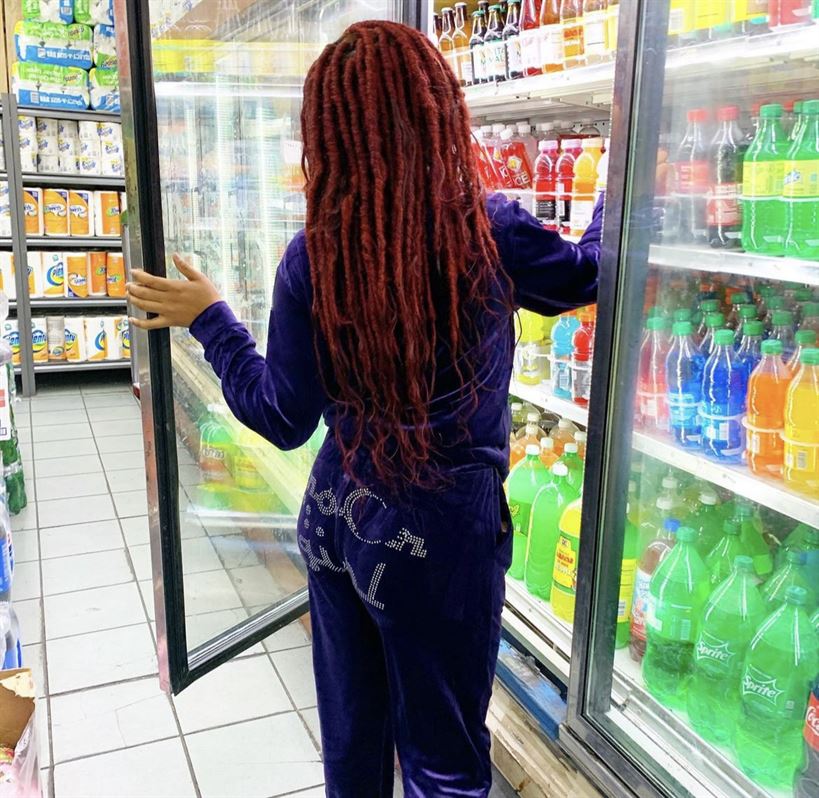
A model poses wearing the Moon Girl velvet tracksuit.
Chelsea Pujols | The Montclarion
The brand has seen much success, as the group’s Renaissance Show on June 18 had a turnout of over 100 people and made about $600 to $700 in ticket sales.
Both Aboagye and Moulton credit their close connection with their communities as part of the reason for their success.
“We’re really like a community more than a brand,” Moulton said.
Aboagye adds which locations the brand works with.
“[We work] closely with New York, New Jersey and Atlanta creatives,” Aboagye said. “We try to uplift people.”
Aboagye also draws inspiration and motivation from lessons learned at Montclair State. He cites the inspiration for the popular “Captain of my Soul” t-shirt from a ceramist he learned about in his Objects of Clay class. Screen printed in Aboagye’s home, the shirt features a black and white print of George Ohr, an American ceramist who created unconventional works that did not sell at his time, but became very popular after his death. Aboagye and Moulton haven’t had to wait as long for success, though, as the shirts alone have made over $300 in revenue so far.
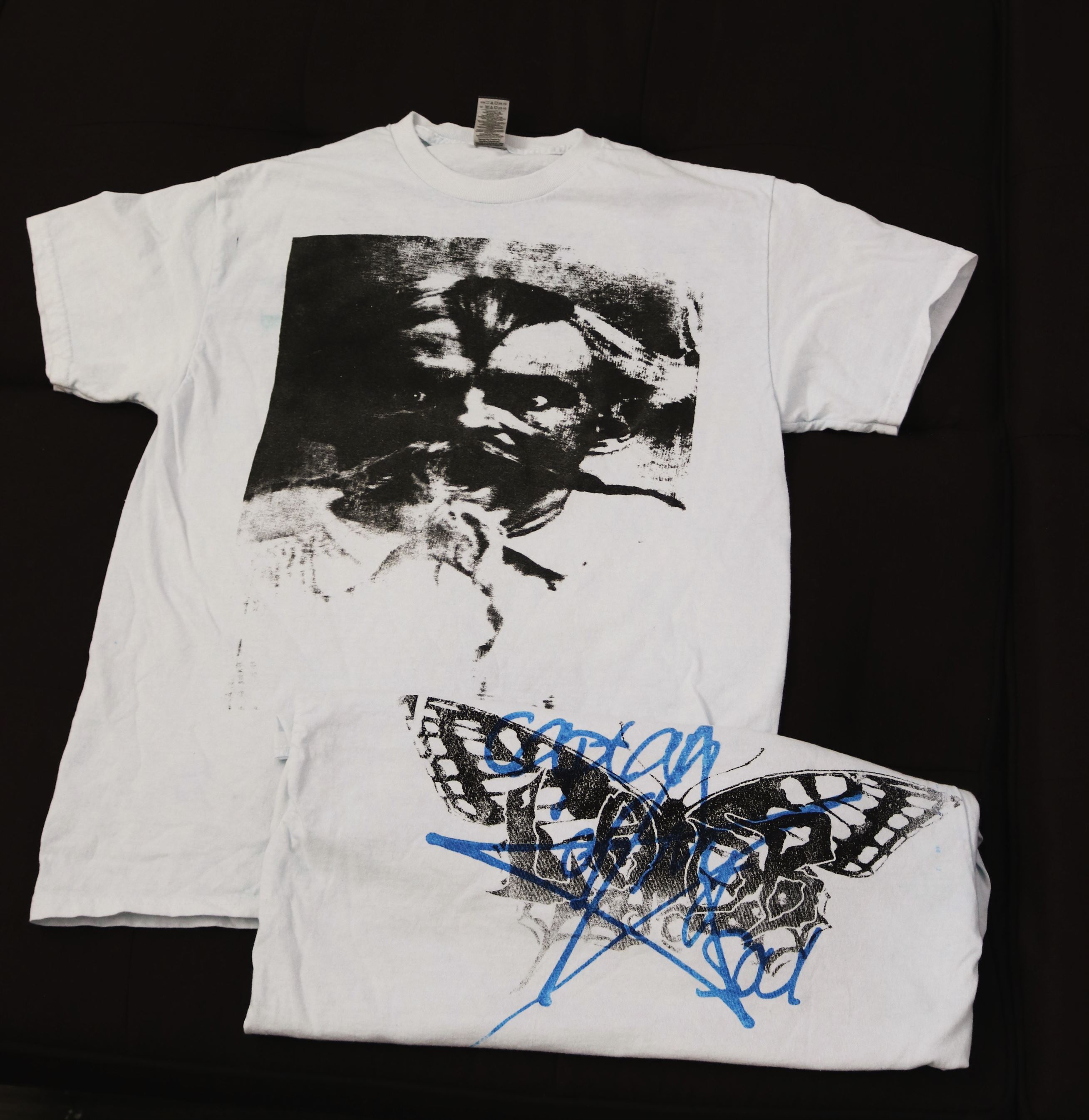
The Captain of my Soul t-shirt displayed.
Chelsea Pujols | The Montclarion
Ohr’s work inspires Aboagye to embrace individuality and believe in his own work. He encapsulates this in the description of the “Captain of my Soul” t-shirt online.
“Ohr’s story inspires me to apply meaning to amount to my work regardless of its acceptance by the public as one’s truth and self-expression are crucial to their creative endeavors,” Aboagye said.

